On a cold and overcast 23rd of October, 1829, the ship Warrior sailed from Portsmouth, England loaded with hopeful emigrants bound for Western Australia.
Among them, Robert Heppingstone Sr. had signed on in the employ of John Molloy, his former army captain, following the promise of free land granted to immigrants who brought money, goods, and laborers to tame the wilderness. Robert brought with him his wife, their baby daughter, and his two children from a previous marriage. Arriving at the Swan River Colony (now Fremantle), they met with news that choice lands in the colony were all taken, but there would be more if they went farther south. So they boarded another, smaller ship, the Emily Taylor, which on May 2, 1830, landed them on the beach at what was to become the town of Augusta, at the mouth of the Blackwood River.
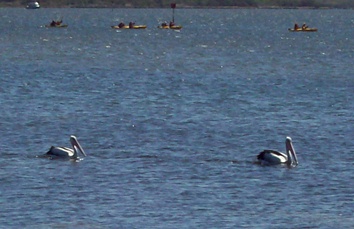
|
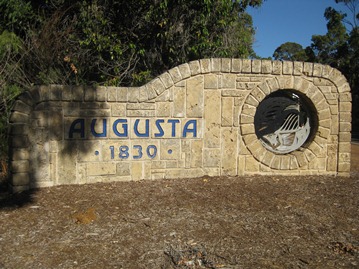
Entering Augusta on Hwy
10
|
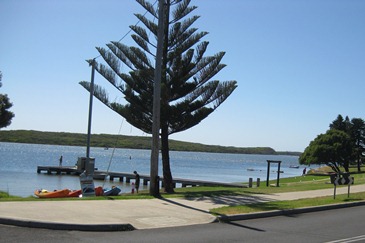
|
| Blackwood River at Augusta |
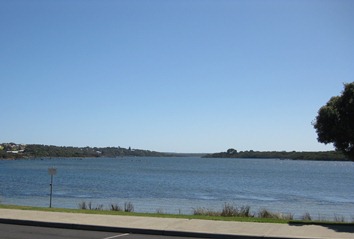 |
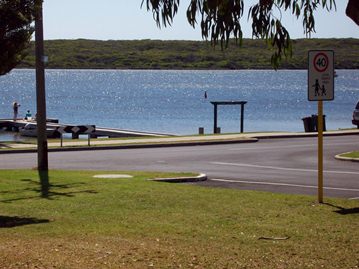 |
|
 |
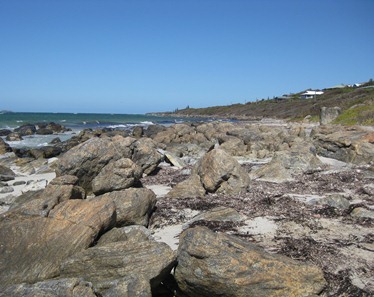 |
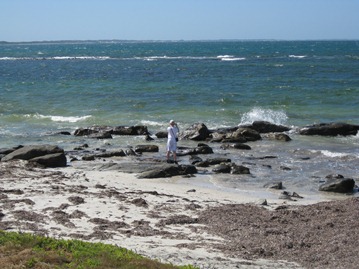 |
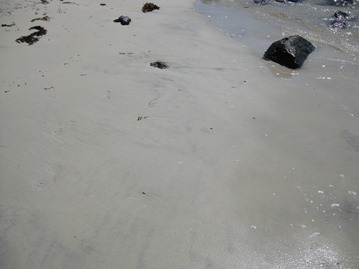 |
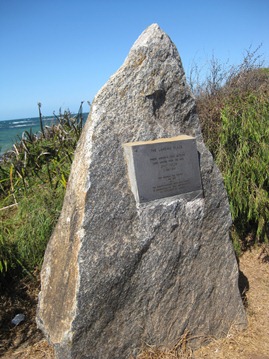 |
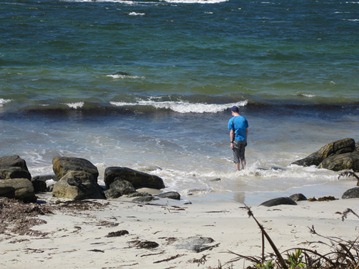 |
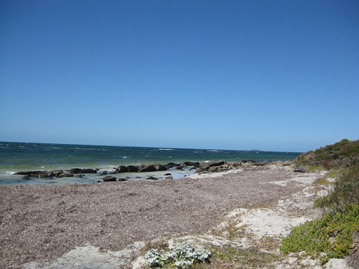
From the landing site, St. Alouarn Island is just visible in the distance
|
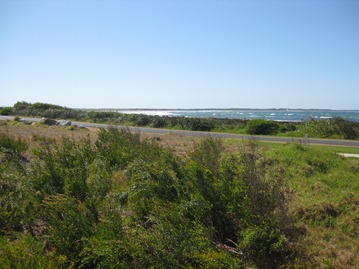
view from the Heppingstone’s home site |
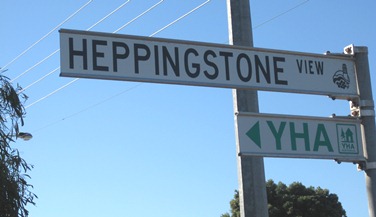
...which is actually at the other end of town from the street bearing their name
|
|
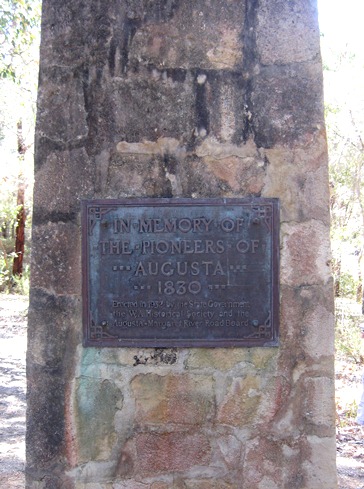 |
 |
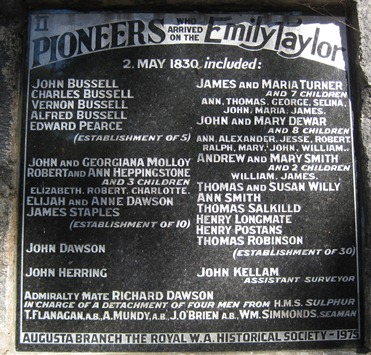 |
| Pioneer memorial in the town |
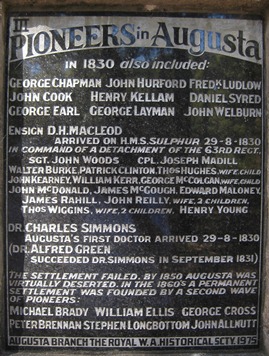 |
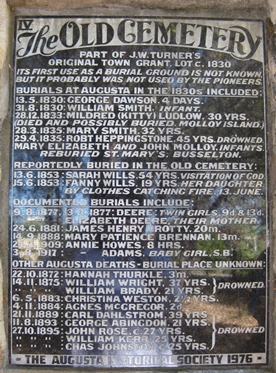 |
|
 |
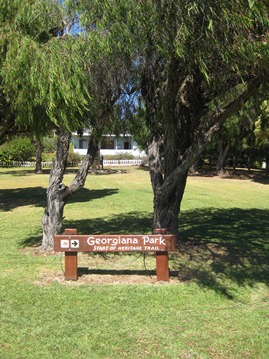 |

In addition to a large family, James Turner brought a prefabricated house and his skills as a builder. Recognizing the value in the local timber, he soon went into the lumber business.
|
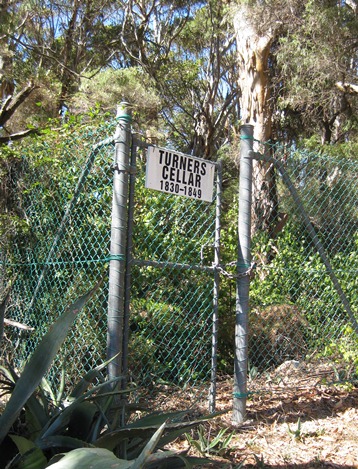 |
 |
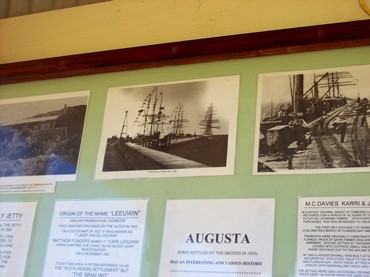 |
 |
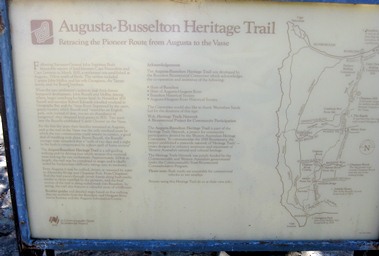 |
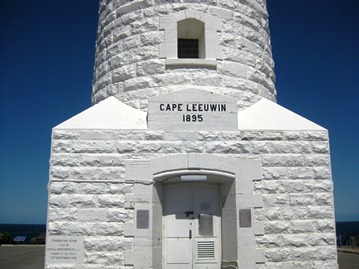
|
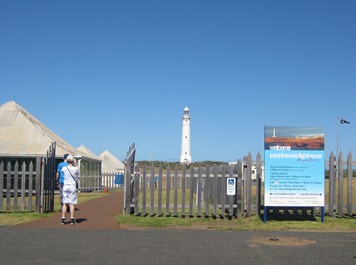 |
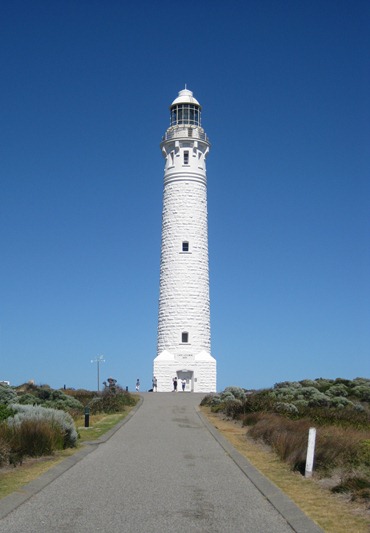 |
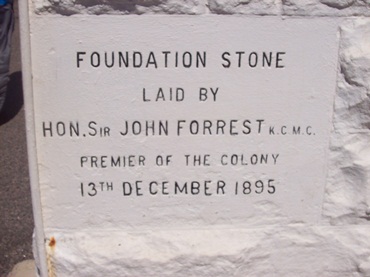 |
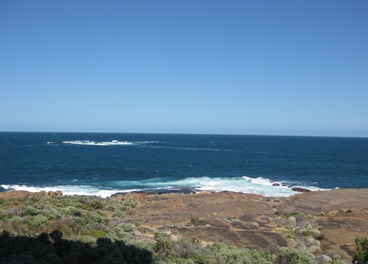 |
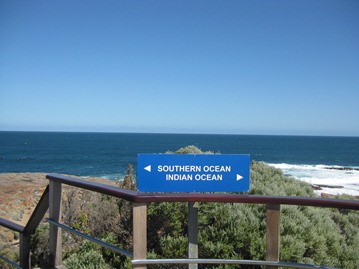 |
Depending on who you listen to, Cape Leeuwin is the meeting point of the Southern and Indian Oceans
(... look carefully, and you can just see the dividing line in the photo on the left ;-) |
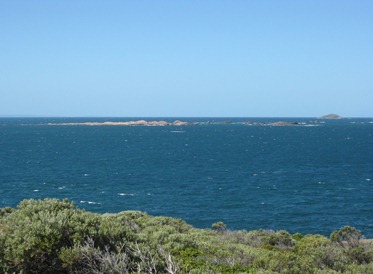 |
 |
^ It was from the St. Alouarn Islands just south of the cape that
Robert Heppingstone Sr.
was swept off the rocks and drown in 1835.
|
|
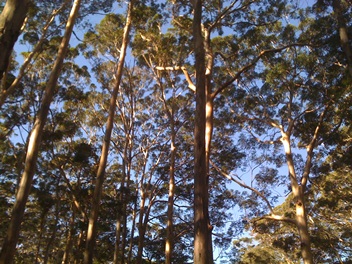
The area around Augusta is thick with karri and jarrah trees, which the settlers initially thought indicated promising timber and agricultural land.
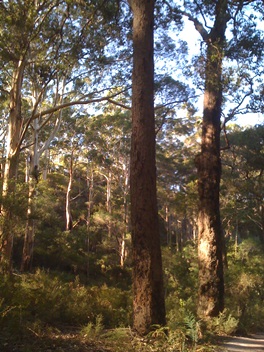
|
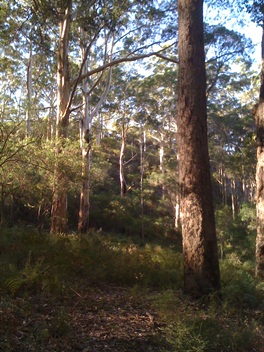
Unfortunately, those trees were the bane of the early colonists, as they thrive in poor soils while their hard wood and deep roots made the land difficult to clear.
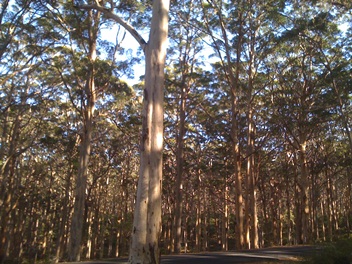
|
|
By 1840, government support for the colony had all but disappeared, and most of the original colonists determined to move to more promising land near the Vasse River, which would become the town of Busselton (named for the first of the original families to relocate there.)
|
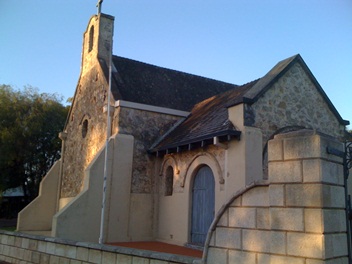 |
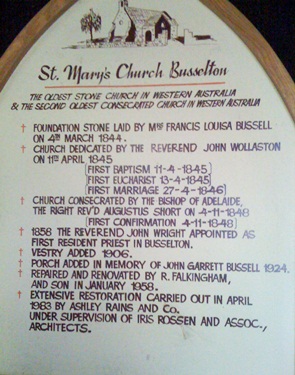 |
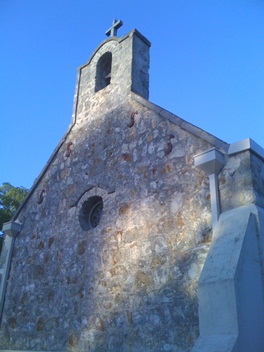 |
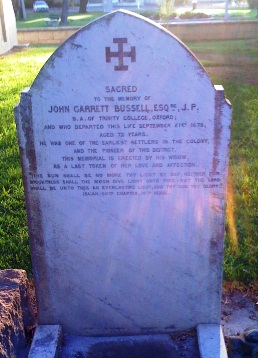 |
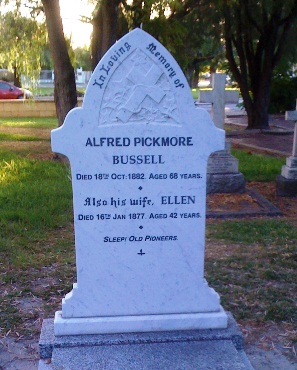 |
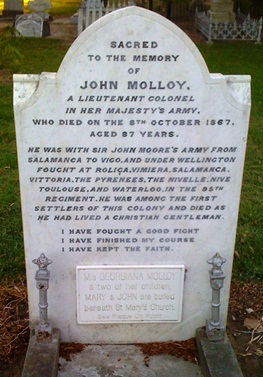 |
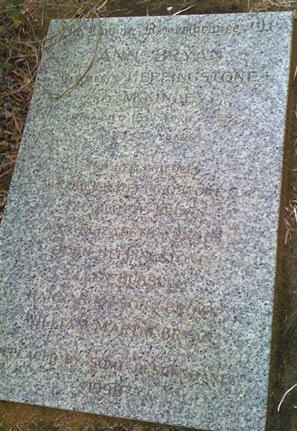
Click here for better picture & more information |
| |
|
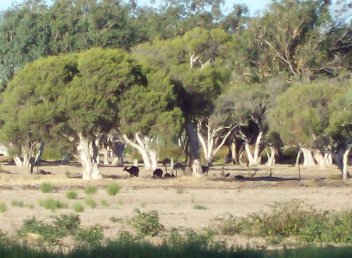
On the drive back to Perth — just to prove we were really in Australia —
those are wild kangaroos among the trees. |
Descendants of